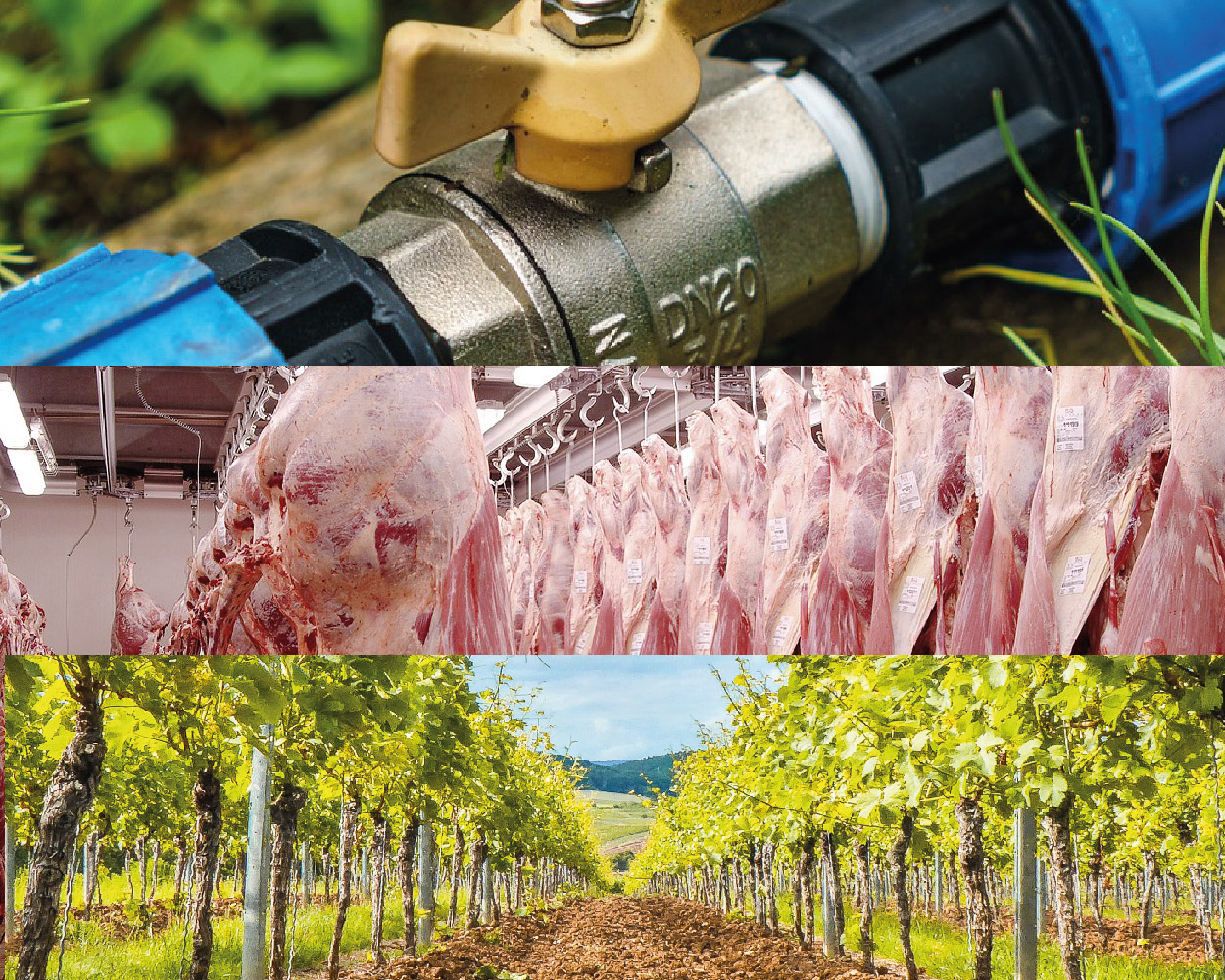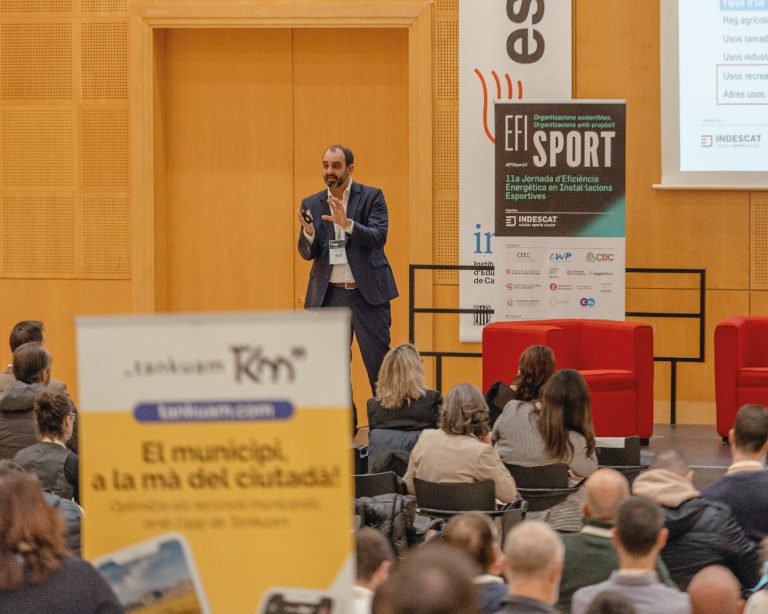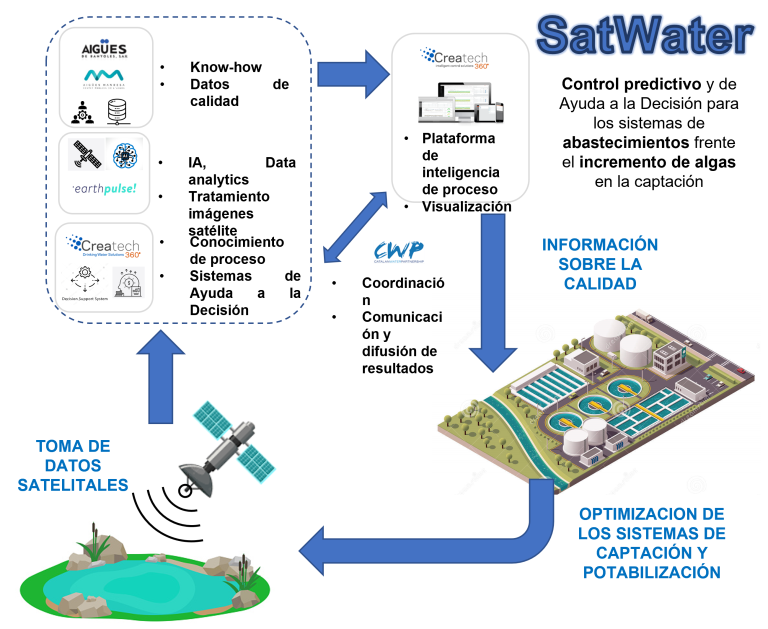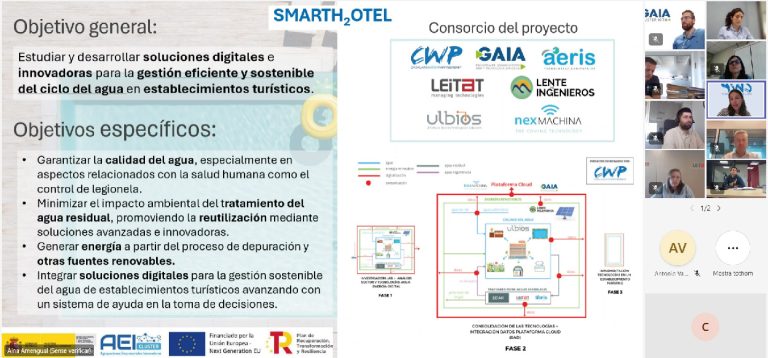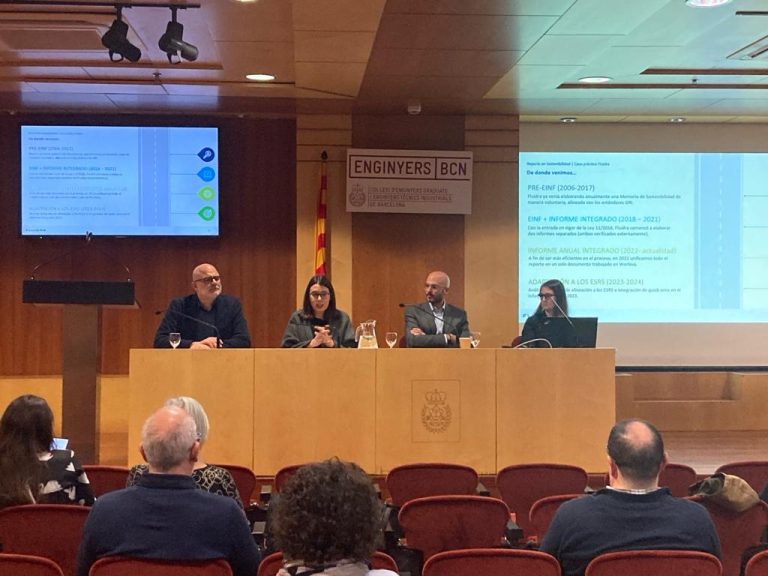The deadline for the execution of the FLUENT, VECOLI and VIWATEC projects of the IRC 2023 call ends
Last August 31, three of the projects being executed by the CWP and which are part of the Call for Competitiveness Reinforcement Initiatives (IRC) promoted by ACCIÓ ended. The focus of this year’s projects has focused on collaboration (both at an intrasectoral and intersectoral level with the meat and wine sectors) for the reduction of water use, the implementation of the use of regenerated water, and saving water through the improvement and control of distribution networks. Topics of great relevance in the context of the drought that Catalonia has been submerged in in recent years.
The FLUENT project has aimed to design and validate a breakdown probability calculation system to identify the points of the urban distribution network that require more supervision and the sections and sectors where the probability of breakdowns is higher. The project has focused on the joint operation of several Catalan network operators in order to obtain a Catalan network standard, which serves to anticipate and establish prioritization guidelines for possible breakdowns that may occur. The results of the project will be useful in order to prioritize network sections and sectors where supervision needs are higher, establish better planning of preventive maintenance actions and save economic costs, while reducing the environmental impact of repairs or water leaks. The calculation system developed is made with open software and in the future it will be possible for it to be replicated by other networks and improved based on the integration of new data from other operators interested in participating in the initiative. The project participants are Aigües de Mataró, Aigües de Manresa, Aventec, BGEO, Taigua i el CWP.
The VECOLI project has been a collaboration project developed at the water-food nexus, in collaboration with the meat sector. It has aimed to develop and validate a system of virtual sensors that allow inferring the concentrations of E coli in the effluents of WWTPs of slaughterhouses. These sensors operate based on specific microbiological measurements and physicochemical data, taken from the effluents of the treatment plants themselves. Since E-coli is an indicator of microbiological quality in regenerated water, the continuous and automatic determination of its concentration will ensure that the regenerated water meets the regulatory requirements at all times to be used in non-contact uses with the food, as contemplated by the legislation. The virtual sensors will therefore make it possible to overcome the regulatory barriers to the use of regenerated water, which in many cases are more restrictive than the technical limitations or the necessary financial investments. As a result, the use of virtual sensors in the future will allow significantly less water consumption in the meat sector, making it more efficient, resilient to periods of drought, and sustainable. The project participants are Innovacc, ADASA, the Avinyó slaughterhouse and the CWP.
Finally, the VIWATEC project also starts from cooperation between sectors, in this case with the wine industry. The purpose of the project has been to promote technological solutions and innovative strategies to reduce water consumption in Catalonia’s wineries and, likewise, to promote the green transition. So, having concluded the project, assessments of the integral water cycle have been carried out in 12 wineries representative of the territory, through individual visits by experts in the water sector. The results of these assessments, together with the knowledge and technologies provided by the participating companies, have served as the basis for the development of two key tools. First, a guide to good practices for saving water in the wine sector, which includes recommendations for use, innovative and disruptive technologies, as well as success stories. Secondly, an online catalog of technologies available for water saving, accessible to the entire Catalan wine sector. The project participants are the Associació Vinícola Catalana i el Clúster INNOVI, ABM Consulting, CIM Aigua, GeoServei, Dr. Canicio Consulting Chemist, Sumarroca, Unió Fruits i la Vinyeta.
In conclusion, the projects promoted by the CWP in the 2023 IRC call have highlighted the importance of cooperation between different key actors in the water sector (FLUENT) or between actors in different sectors such as meat (VECOLI) or wine (VIWATEC) for the achievement of a common goal: reduce water consumption and promote sustainable use in a context of drought.

